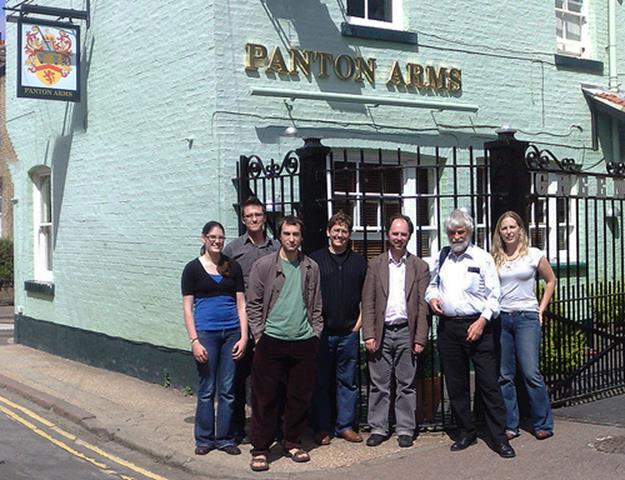On Monday, December 16, 2013 from 6:30 PM to 8:30 PM (GMT) Cambridge, United Kingdom
http://www.eventbrite.co.uk/e/would-you-share-your-genome-sequence-tickets-9293969513

we are running our second Open Science meeting, in the Panton Arms. It’s led by Fiona Nielsen, founder of DNADigest, a non-profit startup :
“The genomic era is at our doorstep together with a lot of promises to personalized medicine – But what exactly is a genome? Do I have to share it? Do I have to share it all? With whom should I share it? What ethical issues might arise? What are my rights concerning my genome? – ”
Fiona came round for dinner on Monday and we had a discussion of what’s involved – people want their genome to be private, but they also wish it to be used by others for science. These are difficult to reconcile (I have been rightly taken to task on this blog for not recognising the difficulty). It’s said that data can be either anonymous or useful but not both. See http://gigaom.com/2013/03/28/when-theres-no-such-thing-as-anonymous-data-does-privacy-just-mean-security/ for a recent blog post.
So DNADigest (http://dnadigest.org/) is looking for solutions. It’s a hard problem, but if it’s crackable Fiona and colleagues will crack it… From her site…
The genomics revolution is already here
The techniques for researching and characterising genomics diseases are available to both researchers (next generation DNA sequencing) and the general public (in the form of personal testing), so we should soon be able to diagnose any genetic disease by sequencing a patient’s DNA.
This is the ultimate goal of research into all genetic diseases, including into hereditary diseases and cancer.
But the sharing of the data isn’t
However, while data output is flooding research centres around the world and genomics results are published in highly prestigious journals, the sharing of the data that enables this research is embarrassingly limited.
The data ownership, the legal consent of the patients involved, the privacy of the patients involved and the mere volume and complexity of these datasets are a major hindrance to sharing of personal genetics data.
So genetic discoveries remain hidden
As a result, many research units are currently maintaining their own ‘silos’ of potentially valuable sequence and patient data. Needless to say, there may be several big genetic discoveries “out there” already sequenced, but not discovered, because no-one has had the means to bring together the matching pieces of the puzzle.
Solution: Secure the data, share the knowledge
DNAdigest is a non-profit organisation, founded for the purpose of solving the problem of accessing genomics data for research purposes, while addressing all of the above concerns.
DNAdigest presents a secure mechanism for querying genome data, which would otherwise not be shared with the broader research community.